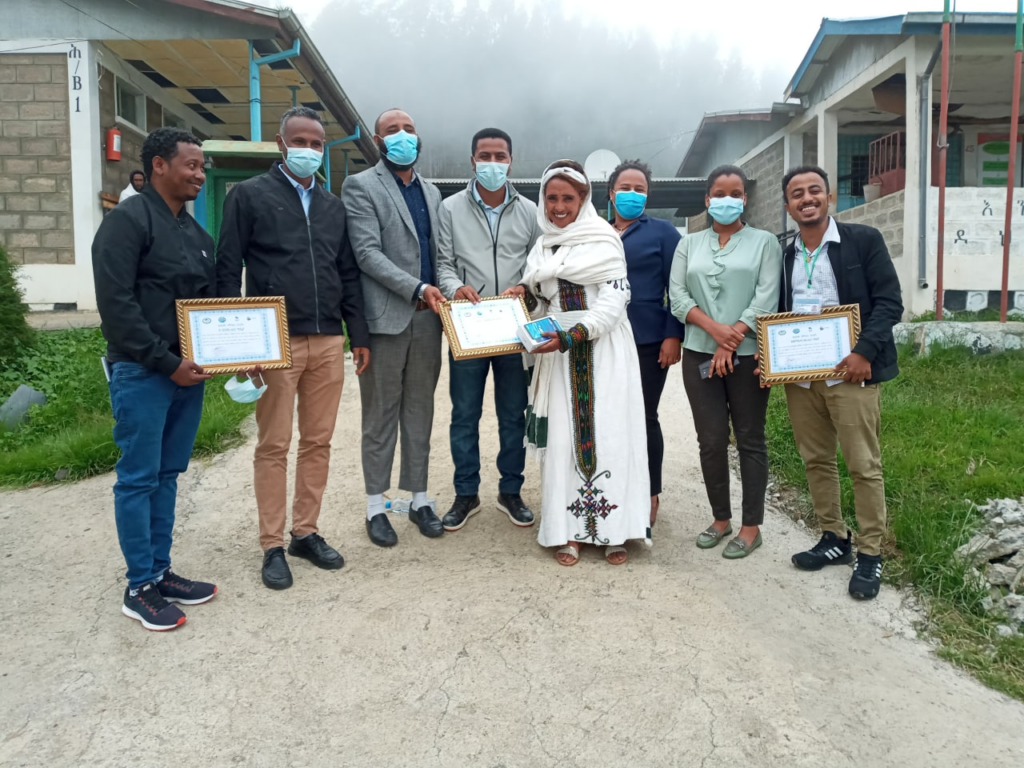
After different tailored intervention packages like need-based capacity-building training, mentorship, joint supportive supervision, review meetings, and experience sharing were designed and implemented, visible progress and achievements have been achieved for the last five years at health facilities and districts. As per the assessment IR result, 38 health centers, four hospitals, and eight districts were modeled after many rigorous efforts had been made.
The center has 18 districts in the two regions (Amhara and Benshangul gumuz), which are the real theory of the implementation science research applied, and we use as demonstration sites for the center (Table 1). On the demonstration sites, different interventions and implementation sciences have conducted and tested. Among the major activities that were conducted were as follows: capacity building, mentorship and supervision, and implementation research. Different capacity-building activities were implemented for the last five years by the center, and the following are the major ones: Different need-based hands-on exercise capacity-building trainings were given to healthcare providers, leaders, and supportive staff for those who have a role in HIS implementation. Most training has been given at health facilities to have real practice with actual data and documents. The Center has implemented different types of mentorship modalities, like UoG lead/joint, woreda lead, and virtual mentorship modalities, by using a standardized mentorship checklist. Currently, all health facilities and districts could prepare their plans, digital literacy improved, most health workers required HIS skills, and most healthcare providers gave attention to HIS at all levels. Capacity-building and mentorship programs.
